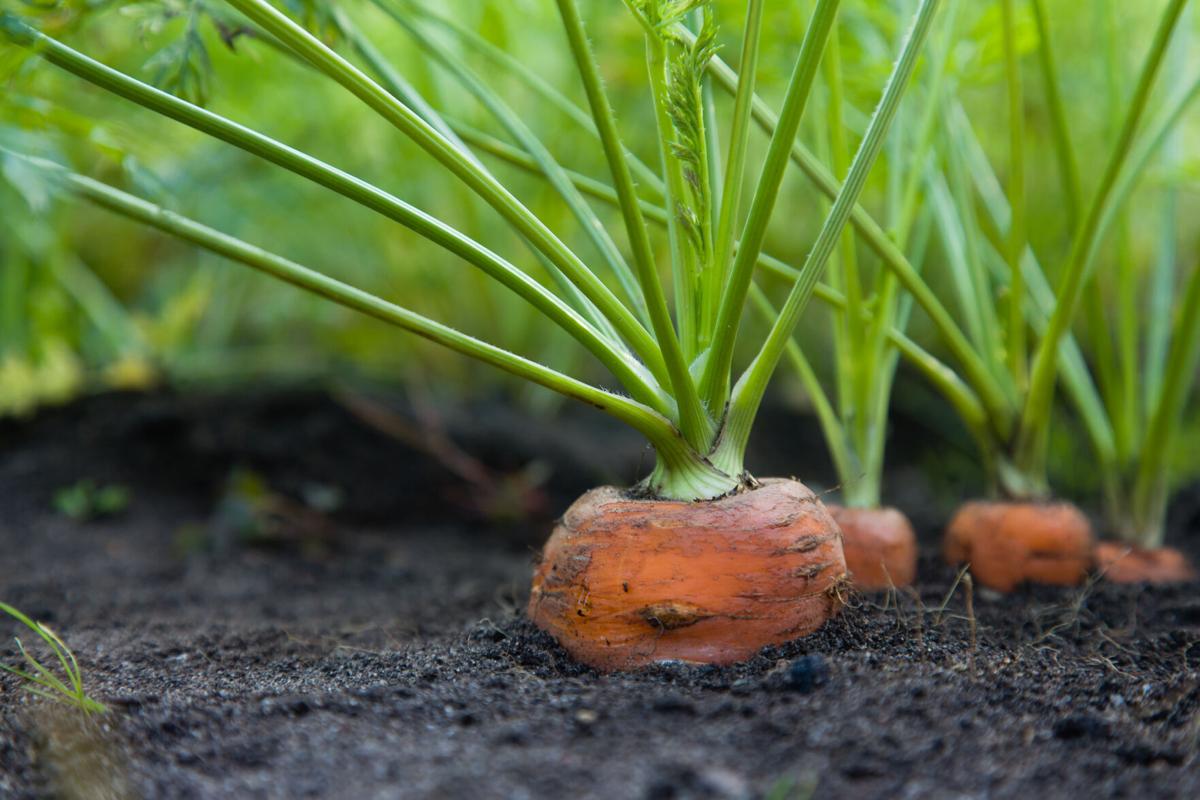Plants are remarkable creatures. They create their own food and structural elements out of thin air, water and sunlight. They also need some basic nutrients, which they get from the soil and the water.
Three nutrients that are essential to plants are well-known to most gardeners — nitrogen, phosphorus, and potassium, the N-P-K listed on all fertilizers. In addition to these three, plants also need calcium, magnesium and sulfur. Together with N, P and K, these six elements comprise the macronutrients needed by all plants. These nutrients have a number of functions in a plant:
- Nitrogen: Promotes plant growth, particularly green foliage. This macronutrient is frequently needed in our soils due to the low organic content of native desert soils.
- Phosphorus: Needed for root and seedling growth, flowering and fruit growth. Also helps with disease resistance. This is another macronutrient that may be in low supply in our native soils.
- Potassium: Needed for overall growth, particularly in fruit trees, and disease resistance.
- Calcium: Plant structure and growth. Plentiful in our soils.
- Magnesium: Essential for leafy growth and sugar synthesis. Particularly important in fruiting plants, such as tomatoes.
- Sulfur: Also important for green growth and fruit development.
Plants also need micronutrients in small amounts to perform their cellular functions and grow happily. Micronutrients include iron, chlorine, zinc, molybdenum, boron, manganese, copper, sodium and cobalt. In our native desert soils, most of these are found in abundance. However, these micronutrients are not always available in a form that plants can take up, due to the alkalinity of our desert soils. Thus, plants (particularly non-native ones) may sometimes need additional iron or zinc. As one example, citrus trees growing in our soils need regular fertilization with nitrogen, iron and zinc to remain healthy and produce good fruit.
Fertilizers can be natural or synthetic, and can be either water-soluble (and thus release into the soil immediately) or slow-release. My article on natural fertilizers discusses some of the options for gardeners who prefer natural fertilizers. The best fertilizers for your plants are complex, organic molecules found in compost and composted manures. You can read more about these in my article on organic matter and fertilizers.
If you’re planting in the ground, you can add organic matter such as compost, manure or vermicompost (earthworm poop) to the top of the soil. The critters in the soil will make sure these are incorporated over time into the deeper soil layers. However, as you would expect, this takes time. It also takes water, since these same critters will usually go dormant or leave during very dry periods. So if you want to improve your soil, you will need to add both organic matter and water.
If you’re having issues with getting plants to grow well in your soil, you should consider getting a soil test. This tells you the amount of nutrients and micronutrients in your soil, as well as the pH, and other characteristics. Most plant experts will tell you not to apply nutrients willy-nilly unless you know for sure what your soil’s nutrient deficiencies are. For a list of laboratories that can do the testing for you, check out this helpful list from the University of Arizona’s Extension office.
If you’re planting in a container, you can have more control. There are plenty of veggie and flower-specific potting soils on the market with various incorporated slow-release fertilizers. You can also make your own mix, such as this one recommended by Thrive and Grow Gardens. Container plants can have lots of organic matter added to the soil, in contrast to in-ground plants. For in-ground plants, you want to limit the organic matter you add to just the top layer. This is because when the organic matter decays (i.e. is processed by soil organisms and its nutrients taken up by your plants), your soil volume will decrease. You don’t want your planted tree to suddenly collapse into its planting hole! However, since you will be replenishing your veggie containers every growing season, it's fine to have lots of organic matter.
For more information on fertilization, nutrients and soil testing check out these helpful handouts from the University of Arizona Extension office:





